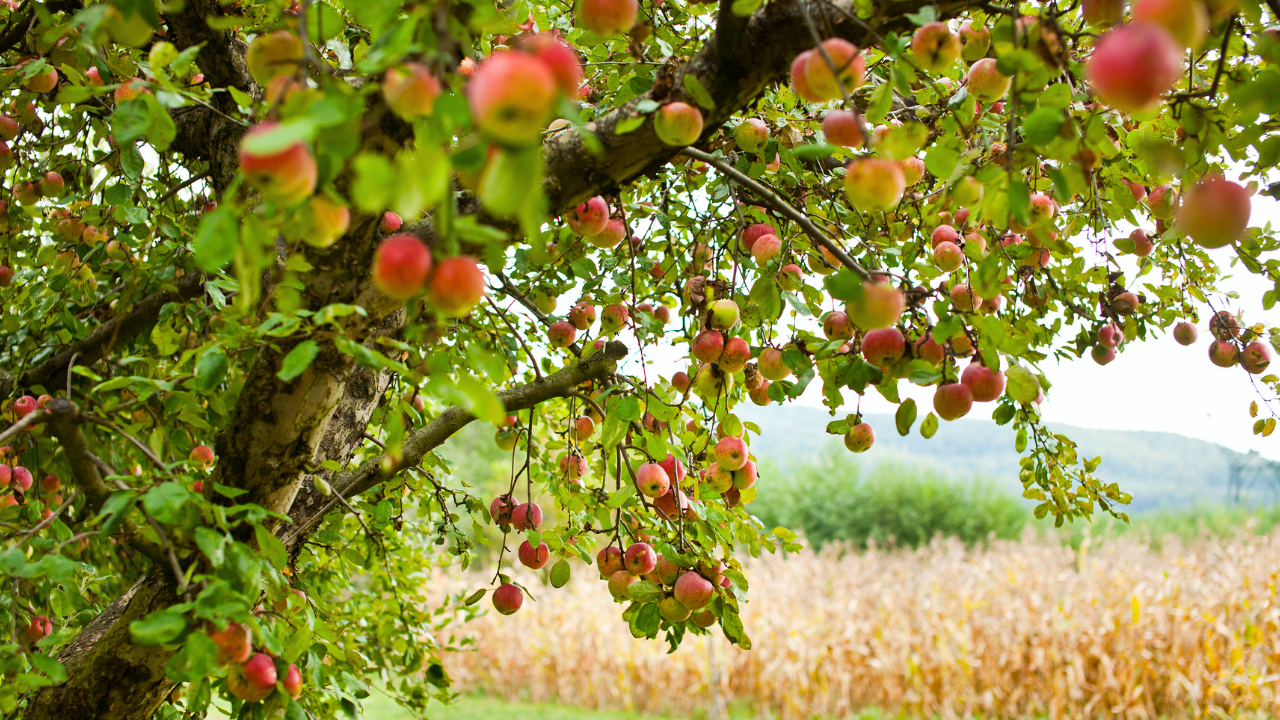Wise Heart Nutrition Blog:
All Things Anti-Diet, Intuitive Eating, and ADHD
What is Joyful Movement? 🏋️

I remember a time where the word “joyful” and “movement” didn’t feel grammatically correct in the same sentence.
There was a period of my life when the buzzing voice of diet culture had its volume waaaay up. You know, the constant nagging of: “you need to exercise every single day to be healthy” and “you need to work-out hard”, or “if you want to eat XYZ you have to workout today” for the *insert unrealistic body rule/ideal/social construct*. Ew, cringey times.
And let’s be real, the way I interacted with movement those days left no, no, NO room for joy.
Shall I paint the picture we all know too well? The sweaty, crowded, stinky, brightly lit gym. The Disneyland length lines for a medieval guillotine-like machine that left me in a painful pretzel. The mirrors on mirrors on the wall, watching you, watching me watching you👀.
And let’s not forget the LOOOUUD diet culture brain chatter that equally said “you need to exercise for this, this, and this reason” while equally feeling ...
A Lifetime Relationship with Food and Eating: A Holiday Reflection

Rounding the corner, momentum strong, pumpkin spice thick in the air. You guessed it, the holiday season is nipping at our heels again!
Along with a good dose of joy, merry, and warmth, this time of year can also conjure up some bigger (and sometimes downright uncomfy) feelings, emotions, and reflections within our mind and body around sticky food rules, harsh and critical self-talk, and shame shame shame for every little move we make (or don’t make).
Personally, I’ve been feeling the pull to reflect on my food and body journey of holiday time past, my navigation of newer territory around the holidays this year, and some bigger picture food and body relationship realizations for future holidays (and future life in general)!
Oh yeah, who am I you may be asking? Let me introduce myself!

Hi there! I’m Marcy :) I’m a current Masters of Science in Nutrition student at Bastyr in San Diego, an ADHD human with a decade of (too much) familiarity with diet culture, a passionat...
Moving Towards Being More KIND in our MIND: 3 Practices to Start!

I’m sure I’m not the only one that needs to hear this (and could really use the reminder #forever&always ♾) but boy oh boy can it feel like an uphill battle to be kind in our highly stimulated minds! The not-so-kind-in-our mind thoughts can feel like second nature, like a smooth and deeply grooved neural pattern to berate and beat ourselves up with. Whether it’s something we said last week, something we did yesterday, something we ate today, or something we’re actively thinking about (“WHY AM I THINKING THIS WAY?” 🧠inception🧠) it still leaves us feeling worse for wear in our mind and body and keeps the un-kind groove… groovin’.
Our quirky and unique brains can easily get on the un-kind merry-go-round, but have a hard time getting off once the cycles and circles are in motion. The thoughts are painfully stimulating! Emotionally charged! And it can feel like they’re firing on all cylinders up there.
So how can we *shhhhhh* quiet down the un-kind chatter in our brains? Keep read...
Doing a "Basic Needs Check-In" During a Hyper-Focus Flow: 3 Easy Tips

Picture this. Early morning sun streaming through the window, you have your (most likely a bit procrastinated?) project in front of you, you adjust your horse blinders, activate your tunnel vision, and become obliviously passionate at the task ahead of you: *write write write* *read read read* *click click click*. Let the hyper-focus flow commence...
🧠
🧠
🧠
Time passes, how long you’re not sure.
Your vision has blurred, your brain is pulsing, and you make the courageous decision to check what time it is. Here we are again, old friend. You did that fun ADHD thing *again* where you hyper focused past the point of rational rhyme and reasoning. Oops!
Nourishment and hydration were far away concepts during those hours and you’ve reached the state of ravenous reptilian brain. All earnest sense of “I planned on making this…” have *vanished* and your kind compassionate frontal cortex (and all the organs for that matter) are patiently waiting for their basic needs to be met before you’r...
5 Steps to Help You Get Started on Your Intuitive Eating Journey

So you’re here because intuitive eating sounds intriguing, but you just have no idea where to start. It’s ok - we’ve been there too! We’ve rounded up 5 actionable steps to start intuitive eating. Try 1-2 a week and call it your jump start month, or take allll the time you need. If you think about it, reading this article is already kinda the first step - so you’re killing it already!
Recognize that diet culture is harmful and weight loss is not equivalent to health
You may still be on the fence about this whole ~intuitive eating~ thing - that’s okay! The best way to get clear about what you want is to learn the facts. Unfortunately, folks are told over and over by medical professionals (including dietitians) that losing weight is necessary, when there actually isn't robust or causal research behind those recommendations. What we do know is that 95% of people who lose weight intentionally, end up gaining all or more back within 2-5 years. People end up fixating on weight and tr...
What is Healthism? And What is True Health?

What is Health?
What is health, really? Is health itself a state of being? A set of behaviors? A performance? Is health a delicate balance between an individual, genetics, and environment? What we do know, is that if you ask 10 people what health means, you’ll get 10 different answers. There are multiple realms of health - physical, emotional, social, spiritual, mental - any of which may be more important to you than another. There may even be aspects of life that are more important to you than health, like personal goals or values. And that’s the point - whatever it means, health is personal!
What is Healthism?
Now, what is healthism? The term healthism was first coined by Richard Crawford in 1980. He defined healthism as the increased pervasiveness of health to all areas of life, and the promotion of health to a super-value that allows moral judgment. He argued that health was inherently political and due to healthism, the definition of health has become so strict that risk fac...
What About Fat Shaming People Who Aren’t Fat?

*The word fat in this article is used as a neutral descriptor of bodies, but acknowledges the intent behind fat shaming to be hurtful and discriminatory.*
Ahh, remember those fond and formative years of the early 2000s … record scratch. Remember being bombarded with media from all directions with content devoted to fat shaming? Remember waiting in the check-out line at the grocery store and seeing the magazines plastered with insults and calling out how much weight a celebrity had lost or gained? Looking back, though, a lot of those people that were constantly being publicly bullied for their weight … weren’t actually fat. We’ve established that body shaming is completely horrible, but what about fat shaming people who aren’t fat?
While it doesn’t compare to the harmful magnitude of fat shaming real fat bodies, body shaming those in smaller bodies is its own special brand of gaslighting that’s used as a method of societal control. It’s an insidious form of misogyny, and a seem...
Intuitive Eating with Diabetes, PCOS, and other Chronic Conditions

So you’ve heard about intuitive eating, but you don’t know if it’s for you because you live with a chronic health condition. There are 10 principles of intuitive eating, focusing on rejecting diet culture, finding your hunger and fullness cues, discovering satisfaction in food and movement, and gentle nutrition. While a chronic condition may pose a barrier to one or more of the principles, it is possible to start by focusing on the components that are within your ability. Read on to find out how you CAN eat intuitively with diabetes, PCOS, or any other chronic condition!
What About My Weight?
Many chronic health conditions carry the stigma that they are caused or worsened by weight, but clinical research has still failed to definitively show this to be true. Weight or BMI is not indicative of health. Those in the “overweight” or “o—-” BMI category lead just as long and healthy lives as those in the “normal” BMI category, if not longer. And of individuals with a chronic illness, t...
Why and How to Make New Year's Resolutions that Aren't About Weight

Did you just see your tenth (or ten millionth) content piece about “new year, new me”? Let’s all say it together - ugh! It’s time for a new year celebration again, and with that comes all the diet industry ads and allll the pressure to make new year’s resolutions around health and body size (and just like every year, they come with that golden promise that “this time, you will make it work”!). Before you start your goal list (or don’t), can we invite you in for a little chat on why you should not make a new year’s resolution to lose weight?
Weight is not a behavior
Read that line again. Weight is not a behavior, and it’s not something you can directly control over the long term. Which means it’s not realistic to make a goal about controlling or changing weight. Research shows that there is little support for the notion that diets lead to lasting weight loss or health benefits. In fact, about 75% of weight and shape is determined by genetics, with much of the remaining percenta...
Why Does Eating For Pleasure Matter So Much?

Whether you're a newcomer to intuitive eating or a seasoned vet, pleasure in food can sometimes still feel like a dirty word. Allowing and enjoying pleasure in your eating experience goes against everything diet culture stands for, like self-control, denial of pleasure, and avoidance of "bad" foods.
The intuitive eating principles describe pleasure in food as one of the most basic and important factors in feeling satisfied or content with food. So eating for pleasure is important, and in this blog, we'll answer 4 questions about food/eating and PLEASURE.
What are some of the psychological health benefits associated with food enjoyment?
- Pleasure of any kind (including pleasure from food) leads to a release of dopamine (a neurotransmitter) in the brain. Dopamine is often referred to as the “feel good chemical” because it activates the reward pathways in the brain, which helps to promote happiness, calmness, motivation, and focus.
- Thanks to diet culture, a big part of dis...
